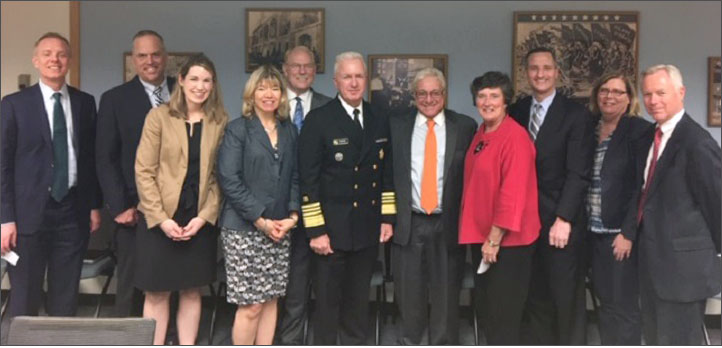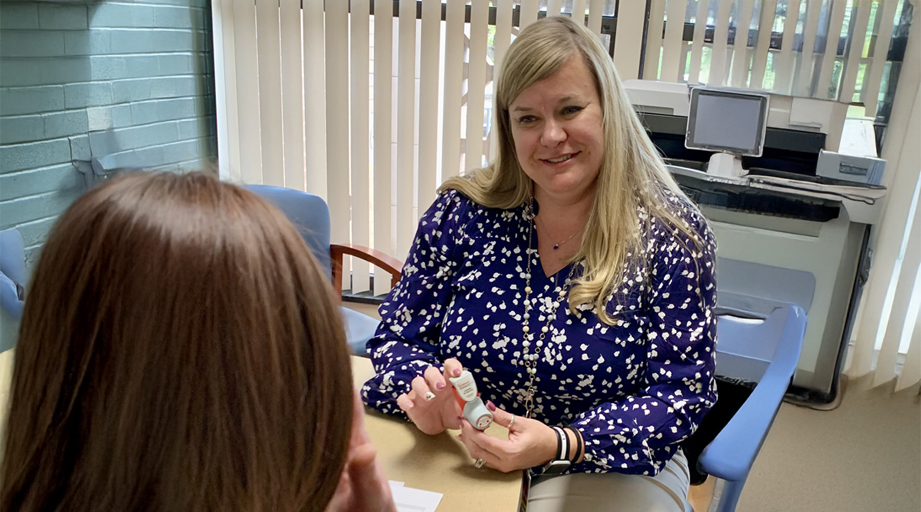

Admiral Brett P. Giroir, ASHP’s Kasey K. Thompson (third from right), and representatives of other member groups in the National Conference of Pharmaceutical Organizations gather on October 30 at the Hubert H. Humphrey Building, headquarters of the Department of Health and Human Services. Photo courtesy of Lucinda L. Maine.
Department of Health and Human Services’ assistant secretary for health, Admiral Brett P. Giroir, on Tuesday in Washington, D.C., met with representatives of ASHP and the other 10 member groups in the National Conference of Pharmaceutical Organizations (NCPO) to strategize about how to combat the opioid crisis.
The meeting came at the request of NCPO, which in January asked the Trump administration for the opportunity to discuss specific recommendations in the report by the President’s Commission on Combating Drug Addiction and the Opioid Crisis. NCPO stated that it also wanted to discuss the federal government’s plans for implementation of those recommendations and identify shared goals in combating the opioid crisis.
Kasey K. Thompson, ASHP Chief Operating Officer and Senior Vice President, who represented ASHP at the meeting, noted that “pharmacists are absolutely critical to solving the opioids crisis.”
“Pharmacists as clinicians, patient care providers, and members of the team can have a major influence on opioid prescribing practices and on maximizing the use of non-opioid therapies, working with patients and other members of the healthcare team on medication-assisted treatment efforts, leading opioid stewardship programs, creating and managing comprehensive pain management plans, and other means to addressing the opioid epidemic while ensuring patients get the care and pain management that they need.”
In total, the commission presented the president with 56 recommendations to prevent and treat opioid addiction, reverse opioid overdoses, and promote recovery from drug addiction.
One such recommendation is for hospitals, clinics, and community pharmacies “to become year-round authorized collectors” of leftover and expired opioid-containing drug products “and explore the use of drug deactivation bags.”
Another recommendation is for insurance companies, federal health systems, and state payers to expand their programs for hospital- and primary case-based substance use disorder treatment and referral services.
Thompson said the meeting’s participants discussed the numerous ways by which NCPO’s member groups could support the administration’s efforts to solve the opioid crisis through the individual and collective efforts of their respective sectors.
NCPO’s member groups represent over 300,000 pharmacy practitioners, pharmaceutical scientists, and pharmacy regulators and educators.










